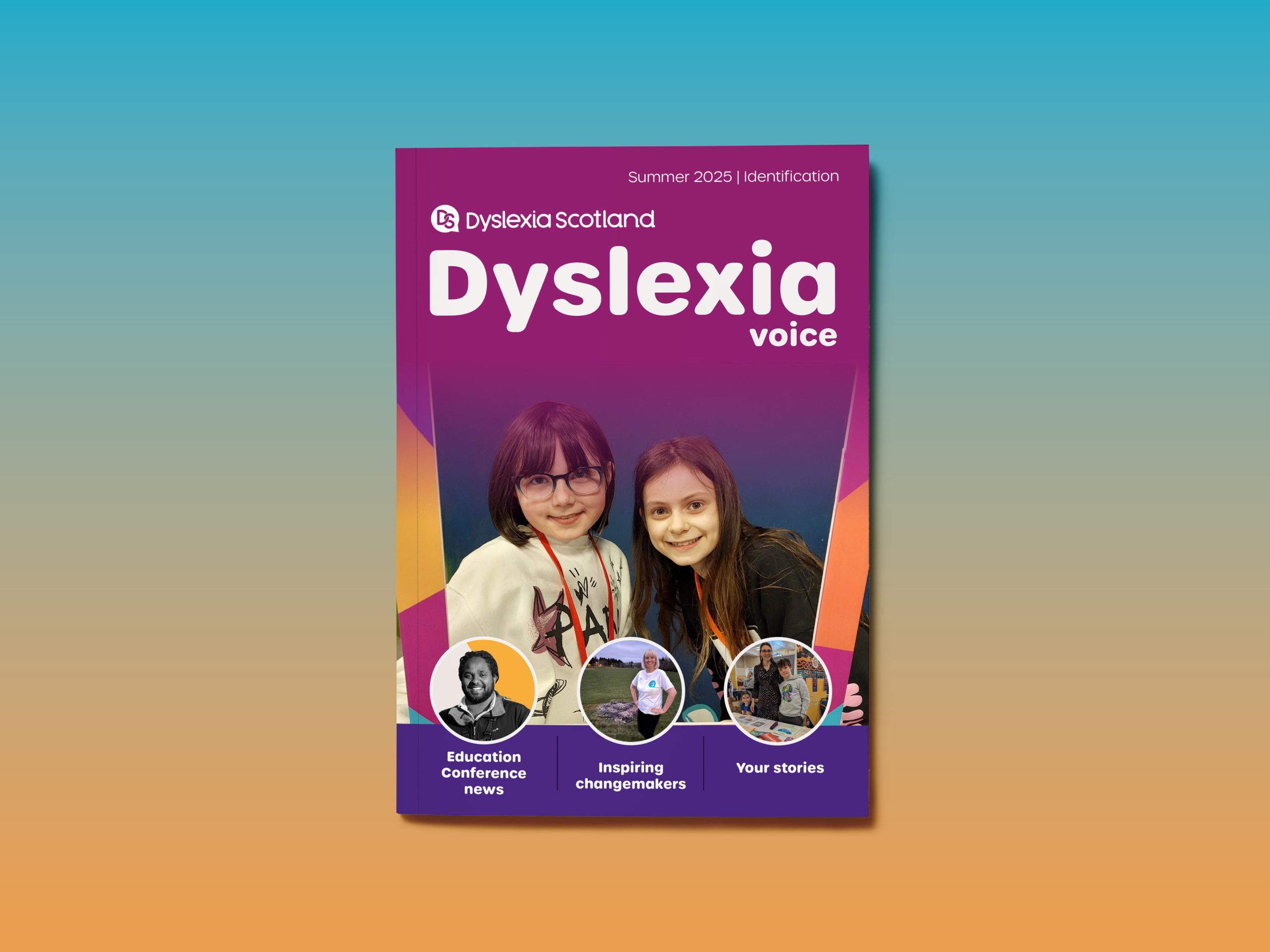
Summer 2025 | Identification
Welcome to Dyslexia Voice – the theme of our summer edition is Identification.
The most frequently asked question on our Helpline is about this topic, no matter what age the enquiry is about. Therefore, it wasn’t surprising to see how many people wanted to contribute to this edition.
Many of the magazine contributors talk about the major difference a dyslexia identification makes to them. For example, they understand themselves better and have a far clearer sense of what dyslexia means for them.
These testimonies reinforce what dyslexic adults told us in the research we carried out last year with the University of Glasgow. Most people have at least one positive emotion when they find out they are dyslexic: sixty-five per cent of survey respondents described feeling validated or empowered as a result.
This edition’s articles remind us that the significance of identification should not be underestimated, nor of course the support it opens doors to – see the article by Alan Rust, whose dyslexia assessment funded by Unite the Union was a “great relief” for him. In ‘Behind the scenes’, Hugh Latta, responsible for the delivery of Dyslexia Voice to your doors, says “a massive weight was lifted off my shoulders.” Jennifer Martin says the same in her article. Ross Linnett, CEO of ‘Recite Me’, the accessibility toolbar we use on our website and on the Addressing Dyslexia Toolkit, writes, “It felt like a big moment – not just in terms of understanding myself better, but also in finally having an explanation for everything I’d experienced up to that point.”
Emma’s family journey about identifying their child as dyslexic highlights “the challenges that co-occurring conditions can play in the identification journey.”
Orthoptist Nadia Northway’s article, ’Differentiating dyslexia from visual difficulties’ explains that dyslexia is not primarily a visual problem but a language processing disorder. Debra Dingwall-Bain, a Dyslexia Scotland tutor, outlines that an important part of the collaborative process of identifying dyslexia is having the conversation with others in the child or young person’s wider world.
Enjoy the articles!